Read the latest news on coronavirus in Delaware. More Info
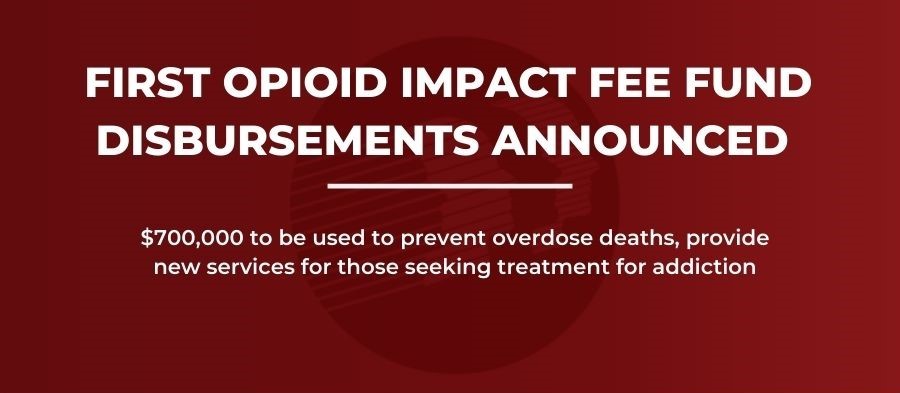
DOVER – Revenue from a new opioid impact fee created by the Delaware General Assembly in 2019 will be used to prevent overdose deaths and provide new services to those seeking treatment for their substance use disorder, the Delaware Department of Health and Social Services (DHSS) and Sen. Stephanie Hansen announced Wednesday.
DHSS Secretary Molly Magarik this week detailed the department’s plan to spend the first $700,000 raised by the fee as of the third quarter of 2020, as required by Senate Bill 34.
Those funds will be used to bolster Delaware’s supply of naloxone, a medication that can reverse an opioid overdose; support the expansion of Bridge Clinic services to 24 hours a day in all three counties; and provide grants to people in treatment or recovery for such needs as transportation, housing, or education.
“As we work to reduce the spread of COVID-19, our state continues to respond to an opioid epidemic that is costing the lives of far too many Delawareans,” DHSS Secretary Molly Magarik said. “The opioid impact fee created by Sen. Stephanie Hansen last year is proving to be a powerful tool in that fight. These funds are helping us to expand our services and reach the people most in need of that support.”
Signed into law by Governor John Carney in June 2019, Delaware’s first-in-the-nation opioid impact fee requires some of the nation’s largest drug makers to address the costs of the opioid crisis they helped to create.
Manufacturers are now charged one penny for every morphine milligram equivalent (MME) of any brand-name opioid dispensed in Delaware and one-quarter of a cent for every MME of their generic opioids sold here. Companies that refuse to pay the fee can be charged a penalty of up to $100 a day or 10 percent of the total impact fee, whichever is greater.
Proceeds from the fee are then held in a special Prescription Opioid Impact Fund that can be used only for the prevention and treatment of opioid use disorder. According to the law, the fund is administered by DHSS with input from the Behavioral Health Consortium, the Addiction Action Committee, and the Overdose System of Care Committee.
“When we started down this road, we heard from countless naysayers who falsely claimed either that this legislation would hurt pharmacies, negatively impact consumers or fail to make a difference,” said Sen. Stephanie Hansen, the lead architect and driving force behind Senate Bill 34, along with House prime sponsor Rep. David Bentz. “Fears such as these prevent progress and have allowed this crisis to go on so long. This announcement today proves we can hold drug makers accountable. We can bring innovative, new tools to bear to confront addiction in our communities. And we can do more to break the cycle of abuse, addiction and death that has touched so many families in our state.”
Delaware is one of the top 20 states in opioid prescriptions per capita and currently leads the nation when it comes to the prescription rate for high-dose opioids. Delaware also ranks in the top five for most overdose deaths per capita. Every year since 2009, more Delawareans have died from drug overdoses than motor vehicle crashes, including 431 in 2019 alone – a record likely to be broken this year.
“The status quo simply will not suffice if we are going to get Delaware’s opioid crisis under control,” said Alexis Teitelbaum, acting director for the Delaware Division of Substance Abuse and Mental Health. “Revenue from the opioid impact fee will support our efforts to build out Delaware’s treatment infrastructure and continue our efforts to reach more people in new ways.”
Funds from the Opioid Impact Fee will be targeted for four main purposes in the coming year:
- $300,000 will be combined with federal grant funding to help fill a critical gap in the existing system of care for people struggling with addiction issues. Interventions immediately following an overdose or other hospitalization present an effective opportunity to enroll patients in treatment programs. Currently, people discharged from the hospital are brought to a Bridge Clinic, located in each county, for screening and referrals to these programs. However, Bridge Clinics do not operate 24/7. DSAMH is currently working to address this issue through the addition of Stabilization Centers that can house and counsel clients during off-hours and weekends. Funding from the Opioid Impact Fee will help cover capital start-up costs, while the State Opioid Response federal grant will be used to fund programmatic and treatment expenses.
- $250,000 will be used to help people struggling with addiction issues fill gaps in the social determinants that often present roadblocks in their efforts to enter, continue and complete the treatment and recovery process. These funds will provide DSAMH with the ability to assist clients with transportation costs and transitional housing while they seek treatment, as well as additional supports for people in recovery.
- $100,000 will be reserved to cover the Department of State’s administrative expenses associated with the collection of the fee.
- $50,000 will be used to purchase 925 additional naloxone kits that DSAMH will make available to various community groups. Organizations can acquire these life-saving kits by contacting DSAMH. During the first three quarters of 2020, the Delaware Division of Public Health’s Office of Health Crisis Response distributed nearly 6,300 naloxone kits statewide through its community partners.
“There are no easy solutions when it comes to treating people struggling with substance use disorder,” said Lt. Gov. Bethany Hall-Long, who chairs the Delaware Behavioral Health Consortium. “To be successful, we must take a truly holistic approach. This means supporting both the individual and their family as we attempt to remove the social determinant barriers that hinder an individual on a path to recovery,” she said. “The Opioid Impact Fee is helping Delaware to build that behavioral health system infrastructure. This legislation is doing more than just generating revenue. It will help us to save lives, rebuild families, and restore communities torn apart by addiction. Sen. Hansen, Rep. Bentz, the community advocates, and DHSS deserve a lot of credit for the plan being put forward today.”
Related Topics: Delaware Health and Social Services, DHSS Secretary Molly Magarik, DSAMH, General Assembly, Lt. Governor Bethany-Hall-Long, opioid impact fee, Rep. David Bentz, Sen. Stephanie Hansen, substance use disorder
Keep up to date by receiving a daily digest email, around noon, of current news release posts from state agencies on news.delaware.gov.
Here you can subscribe to future news updates.

DOVER – Revenue from a new opioid impact fee created by the Delaware General Assembly in 2019 will be used to prevent overdose deaths and provide new services to those seeking treatment for their substance use disorder, the Delaware Department of Health and Social Services (DHSS) and Sen. Stephanie Hansen announced Wednesday.
DHSS Secretary Molly Magarik this week detailed the department’s plan to spend the first $700,000 raised by the fee as of the third quarter of 2020, as required by Senate Bill 34.
Those funds will be used to bolster Delaware’s supply of naloxone, a medication that can reverse an opioid overdose; support the expansion of Bridge Clinic services to 24 hours a day in all three counties; and provide grants to people in treatment or recovery for such needs as transportation, housing, or education.
“As we work to reduce the spread of COVID-19, our state continues to respond to an opioid epidemic that is costing the lives of far too many Delawareans,” DHSS Secretary Molly Magarik said. “The opioid impact fee created by Sen. Stephanie Hansen last year is proving to be a powerful tool in that fight. These funds are helping us to expand our services and reach the people most in need of that support.”
Signed into law by Governor John Carney in June 2019, Delaware’s first-in-the-nation opioid impact fee requires some of the nation’s largest drug makers to address the costs of the opioid crisis they helped to create.
Manufacturers are now charged one penny for every morphine milligram equivalent (MME) of any brand-name opioid dispensed in Delaware and one-quarter of a cent for every MME of their generic opioids sold here. Companies that refuse to pay the fee can be charged a penalty of up to $100 a day or 10 percent of the total impact fee, whichever is greater.
Proceeds from the fee are then held in a special Prescription Opioid Impact Fund that can be used only for the prevention and treatment of opioid use disorder. According to the law, the fund is administered by DHSS with input from the Behavioral Health Consortium, the Addiction Action Committee, and the Overdose System of Care Committee.
“When we started down this road, we heard from countless naysayers who falsely claimed either that this legislation would hurt pharmacies, negatively impact consumers or fail to make a difference,” said Sen. Stephanie Hansen, the lead architect and driving force behind Senate Bill 34, along with House prime sponsor Rep. David Bentz. “Fears such as these prevent progress and have allowed this crisis to go on so long. This announcement today proves we can hold drug makers accountable. We can bring innovative, new tools to bear to confront addiction in our communities. And we can do more to break the cycle of abuse, addiction and death that has touched so many families in our state.”
Delaware is one of the top 20 states in opioid prescriptions per capita and currently leads the nation when it comes to the prescription rate for high-dose opioids. Delaware also ranks in the top five for most overdose deaths per capita. Every year since 2009, more Delawareans have died from drug overdoses than motor vehicle crashes, including 431 in 2019 alone – a record likely to be broken this year.
“The status quo simply will not suffice if we are going to get Delaware’s opioid crisis under control,” said Alexis Teitelbaum, acting director for the Delaware Division of Substance Abuse and Mental Health. “Revenue from the opioid impact fee will support our efforts to build out Delaware’s treatment infrastructure and continue our efforts to reach more people in new ways.”
Funds from the Opioid Impact Fee will be targeted for four main purposes in the coming year:
- $300,000 will be combined with federal grant funding to help fill a critical gap in the existing system of care for people struggling with addiction issues. Interventions immediately following an overdose or other hospitalization present an effective opportunity to enroll patients in treatment programs. Currently, people discharged from the hospital are brought to a Bridge Clinic, located in each county, for screening and referrals to these programs. However, Bridge Clinics do not operate 24/7. DSAMH is currently working to address this issue through the addition of Stabilization Centers that can house and counsel clients during off-hours and weekends. Funding from the Opioid Impact Fee will help cover capital start-up costs, while the State Opioid Response federal grant will be used to fund programmatic and treatment expenses.
- $250,000 will be used to help people struggling with addiction issues fill gaps in the social determinants that often present roadblocks in their efforts to enter, continue and complete the treatment and recovery process. These funds will provide DSAMH with the ability to assist clients with transportation costs and transitional housing while they seek treatment, as well as additional supports for people in recovery.
- $100,000 will be reserved to cover the Department of State’s administrative expenses associated with the collection of the fee.
- $50,000 will be used to purchase 925 additional naloxone kits that DSAMH will make available to various community groups. Organizations can acquire these life-saving kits by contacting DSAMH. During the first three quarters of 2020, the Delaware Division of Public Health’s Office of Health Crisis Response distributed nearly 6,300 naloxone kits statewide through its community partners.
“There are no easy solutions when it comes to treating people struggling with substance use disorder,” said Lt. Gov. Bethany Hall-Long, who chairs the Delaware Behavioral Health Consortium. “To be successful, we must take a truly holistic approach. This means supporting both the individual and their family as we attempt to remove the social determinant barriers that hinder an individual on a path to recovery,” she said. “The Opioid Impact Fee is helping Delaware to build that behavioral health system infrastructure. This legislation is doing more than just generating revenue. It will help us to save lives, rebuild families, and restore communities torn apart by addiction. Sen. Hansen, Rep. Bentz, the community advocates, and DHSS deserve a lot of credit for the plan being put forward today.”
Related Topics: Delaware Health and Social Services, DHSS Secretary Molly Magarik, DSAMH, General Assembly, Lt. Governor Bethany-Hall-Long, opioid impact fee, Rep. David Bentz, Sen. Stephanie Hansen, substance use disorder
Keep up to date by receiving a daily digest email, around noon, of current news release posts from state agencies on news.delaware.gov.
Here you can subscribe to future news updates.
"impact" - Google News
January 01, 2021 at 11:47PM
https://ift.tt/3rIjXxn
First $700000 in Opioid Impact Fee Funding Allocated for Treatment of Substance Use Disorder - news.delaware.gov
"impact" - Google News
https://ift.tt/2RIFll8
https://ift.tt/3fk35XJ
Bagikan Berita Ini


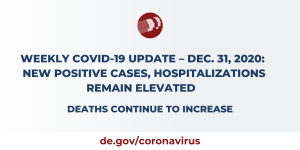






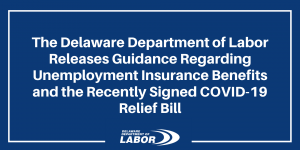
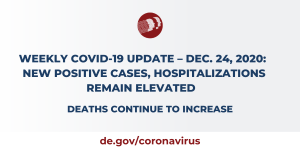

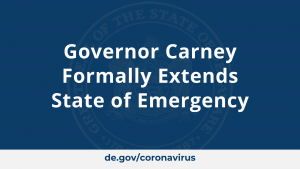








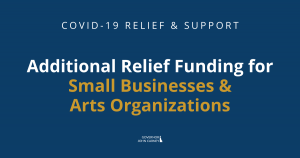
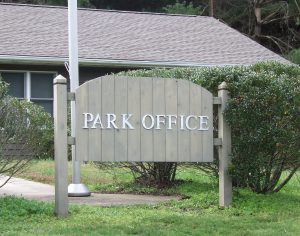
















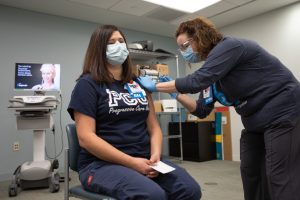
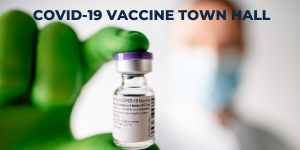


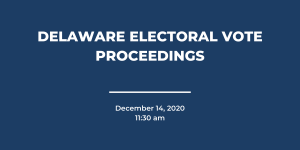























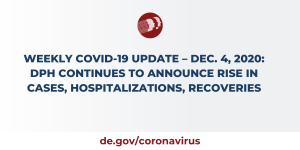



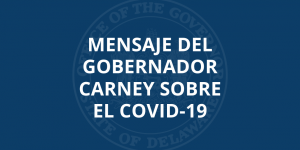


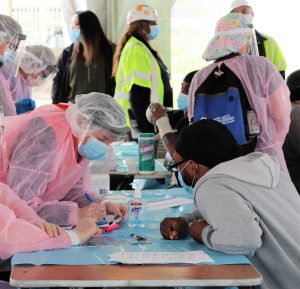









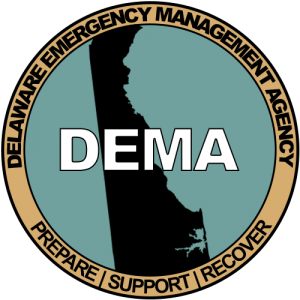
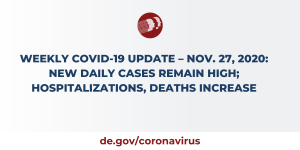

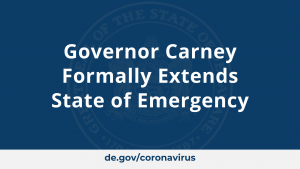
















0 Response to "First $700000 in Opioid Impact Fee Funding Allocated for Treatment of Substance Use Disorder - news.delaware.gov"
Post a Comment